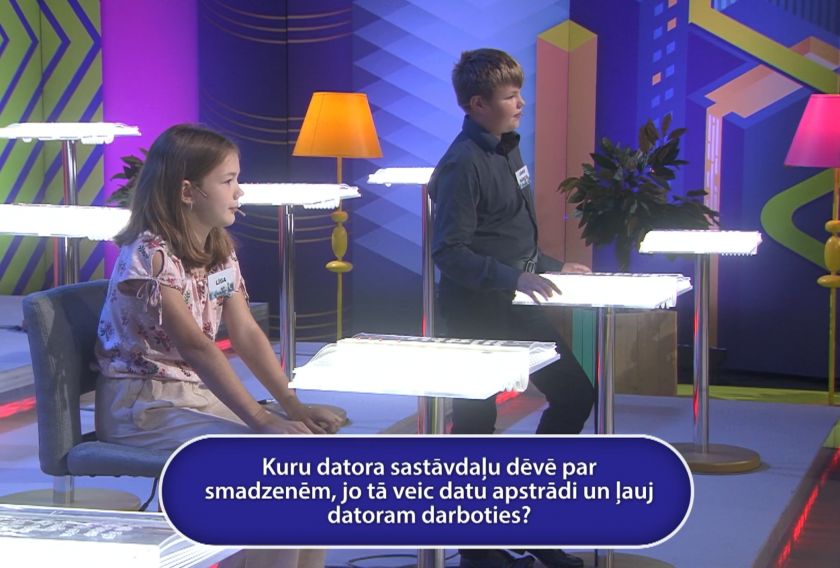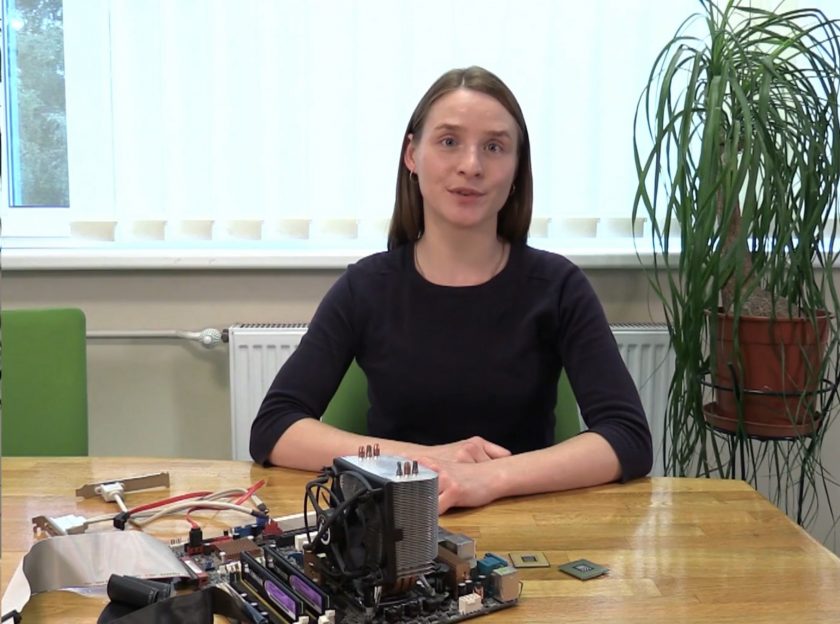
The 11th season of “Smart, Even Smarter” starts. This time, the programme opens with a special surprise – a visit from the President of Latvia, Edgars Rinkēvičs, who wishes the participants, teachers and viewers a very curious new school year and also talks about his school life. The Institute of Electronics and Computer Science is also participating for the first time as a questioner.
From now on, you should turn on LTV1 every week throughout the school year to see what science questions the EDI has prepared for class group.
The video questions prepared by EDI are currently featured in Round 4 of the game and cover computer science, mathematics, science, physics, etc. The questions in the programme are selected and presented by EDI’s scientific staff – research assistants, researchers and principal investigators – and are directly related to the work at the Institute of Electronics and Computer Science and the curriculum of each grade.

The aim of the EDI, through this erudition game for students, is to promote STEM subjects, which are currently in demand, among schoolchildren, to attract their attention to science and to stimulate their future interest in research.
Watch this and other episodes of “Smart, Even Smarter” here:
https://ltv.lsm.lv/lv/raidijums/gudrs-vel-gudraks/11sezona-20232024
Every year, the Erudition Game for schoolchildren “Smart, Even Smarter” invites every student in grades 5 – 12 of Latvian comprehensive schools to take part in an exciting and challenging knowledge test.
There are 3 semi-finals for each age group, each with 12 participants. The top two qualify for the final, where all six participants start from scratch. There are 4 rounds in each game, including the final.
The programme ” Smart, even smarter” is based on the format of the Lithuanian public television project “Lithuanian Millennium Children”. It was launched in 2008 with the aim of finding the smartest and most capable children in all age groups, promoting education, and developing young people’s understanding that knowledge is important for achieving future goals.